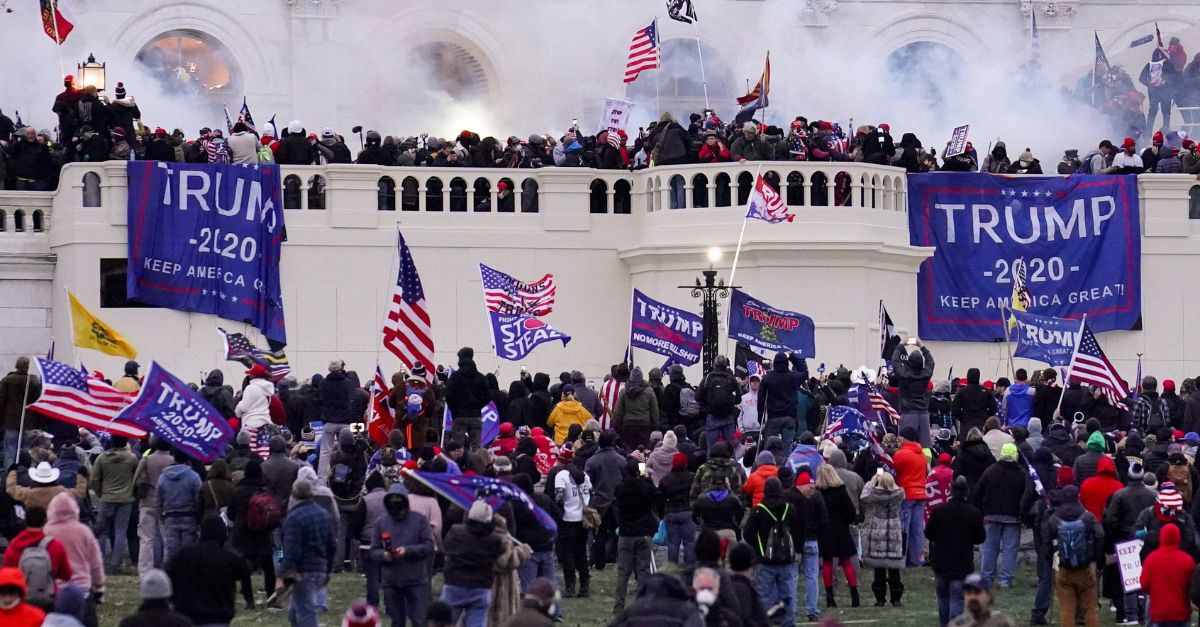Jan. 6 Defendants Deserve to Get Restitution Refunds After Having Cases ‘Invalidated’: DOJ
The U.S. Department of Justice (DOJ) has agreed to provide restitution refunds to certain individuals involved in the January 6 Capitol riot whose convictions were vacated, recognizing that there is no longer a legal basis for retaining funds they paid as part of their legal penalties. This decision highlights the ongoing fallout from the Trump administration’s mass pardons and the subsequent legal complexities surrounding these cases.
The Case of Stacy Hager and the Impact of a Vacated Conviction
One of the primary cases involved in this decision is that of Stacy Hager, an alleged rioter who had been charged for his actions during the Capitol attack. Hager faced multiple charges, including knowingly entering restricted areas, violent entry, and disorderly conduct on Capitol grounds. However, after former President Trump pardoned numerous January 6 defendants, including Hager, the situation took a unique turn. Hager’s case was not just pardoned but “invalidated” when the D.C. Circuit Court vacated his conviction while it was still under appeal. In response to Hager’s motion for reimbursement, Assistant U.S. Attorney Adam Dreher confirmed that, given the vacated conviction, the government no longer had grounds to retain the fines, fees, and restitution payments Hager had made. As the case was dismissed as moot, the DOJ has acknowledged that Hager is entitled to receive a refund, provided the court verifies that he made the required payments.

Legal Precedents and DOJ Response to Vacated Cases
Hager’s case is part of a broader issue for defendants whose January 6 convictions were invalidated or vacated. In these cases, the DOJ has agreed that, in the absence of valid convictions, the funds collected from these individuals are no longer justified. This includes not just Hager but others whose cases were similarly impacted by Trump’s mass pardons and the subsequent legal rulings.
The decision comes amid increasing scrutiny over how the government handled cases related to the Capitol riot, with certain legal experts arguing that many of the charges brought against the rioters were problematic. A key point of contention lies in the use of felony obstruction charges, which were the basis for many arrests. These charges were narrowly interpreted by the U.S. Supreme Court last year, leading to legal challenges that further complicated the DOJ’s handling of January 6 cases.
Political Figures and Criticism of DOJ Actions
This decision to issue restitution has also fueled political debate. Ed Martin, a former top prosecutor under Trump, recently suggested that Jan. 6 defendants should receive “reparations” for how they were treated by the government, comparing their situation to asbestos victims. Martin, a vocal conservative, has also expanded his office’s investigation into the use of the felony obstruction statute against the rioters, dubbing it “The 1512 Project.” At the same time, Martin’s actions have faced criticism, particularly from former federal prosecutors. In April, over 100 former prosecutors signed a letter criticizing Martin, calling him an “egregiously unqualified political hack.” This letter highlighted concerns over Martin’s handling of cases against former Trump allies and Capitol rioters.
Ongoing Legal and Political Repercussions
The DOJ’s actions regarding restitution and the vacating of certain convictions for January 6 rioters are part of a wider legal and political debate that continues to unfold. As more cases are challenged and legal precedents are set, the scope of the legal outcomes for those involved in the Capitol riot remains uncertain. While the decision to refund payments to certain defendants signals a shift in the DOJ’s approach, it also underscores the complexities and controversy surrounding the handling of the January 6 events.


Comments are closed, but trackbacks and pingbacks are open.